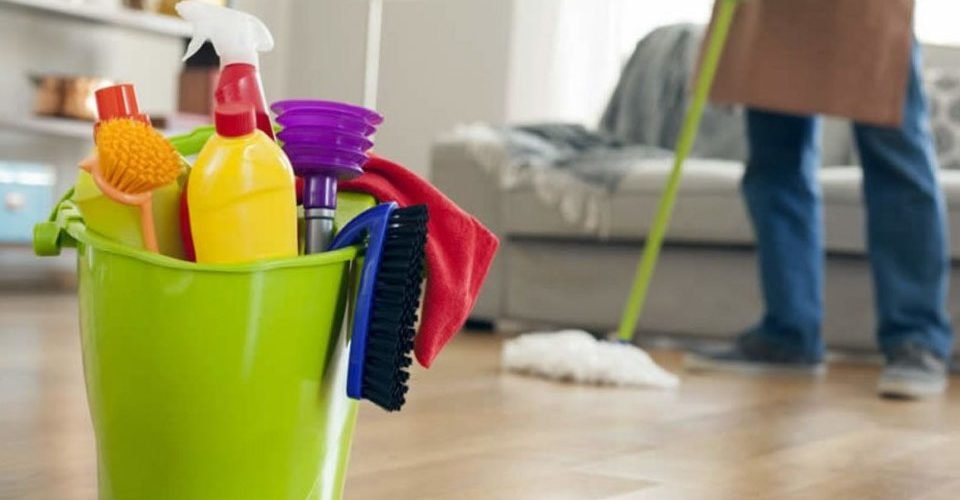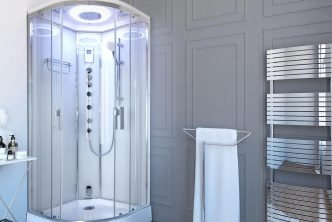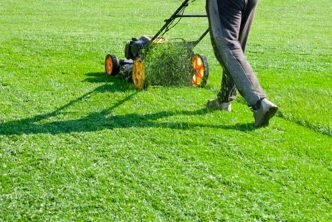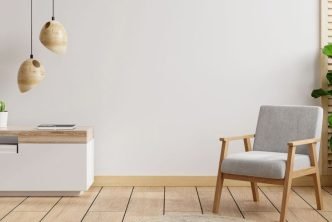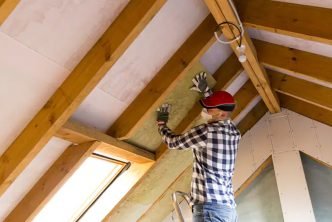The right cleaning products can make all the difference in turning your living spaces into a haven of health and comfort. You know how overwhelming it can feel to stand in the cleaning aisle, bombarded by many choices, each promising sparkling results. It’s not just about the shine, though; it’s about what’s safe, efficient, and right for your home.
You’re not alone in this quest for the best. Many homeowners strive to balance effectiveness and safety, all while keeping an eye on the budget. But here’s the good news: you don’t have to be a cleaning expert to make smart choices.
In this guide, we’ll walk you through the essential factors to consider – from deciphering product labels to understanding the impact on your health and the environment. We’ll discuss the nuances of different cleaning products, explore some eco-friendly options.
Table of Contents
What Do You Need?
You know, when you stroll down the cleaning aisle, it’s easy to feel overwhelmed by the sheer variety of options. But don’t worry, we’ll help you understand the best cleaning products for home essentials, tailored just for you and your unique home.
Variety is the Spice of Life – And Cleaning!
First things first, let’s talk about the different types of cleaning products you’ll encounter. There’s a whole universe out there, from all-purpose cleaners that promise to do it all, to specialized solutions designed for specific tasks. Have you seen those sprays for glass that leave no streaks behind? Or what about the powders and liquids specifically concocted for deep-cleaning carpets? They’re all part of this vast array.
Assessing Your Home’s Cleaning Needs
It’s all about your home’s specific needs. Start by taking a look around. What types of surfaces dominate your space? If you’ve got a lot of hardwood floors, you’ll need a cleaner that’s gentle yet effective for wood. Tiled bathrooms or kitchens? There are products just for those areas too.
And hey, let’s not forget about the people (and pets!) who call your house a home. Do you have family members with allergies? Little ones or furry friends who explore every nook and cranny? Their health and safety are crucial, so you’ll want to choose products that are non-toxic and safe, yet still get the job done.
Your Guide to Choosing Wisely
Understanding the best cleaning products for home environments doesn’t have to be a puzzle. Think of it like matching the right tool to the right job. You wouldn’t use a hammer to screw in a lightbulb, right? The same goes for cleaning products. Here’s a quick checklist to guide you:
- Surface Type: Match the cleaner to the surface – wood, glass, tile, etc.
- Health Considerations: Opt for hypoallergenic, fragrance-free, or natural products if allergies or sensitivities are a concern.
- Environmental Impact: Love the planet? Look for eco-friendly and biodegradable options.
- Effectiveness: Sometimes, the best cleaner is the one that simply works best for you.
What to Look For and What to Avoid
Let’s figure out the good, the bad, and the ugly cleaning products. You know, picking the best cleaning products for your new home or even before using home cleaning services isn’t just about the fresh scent or the sparkling finish. It’s about knowing what’s inside those bottles and how they affect your home, health, and the environment.
Understanding the Ingredients
When you’re standing in the cleaning aisle, it might feel like you need a chemistry degree to understand all those ingredients listed on the labels. But, don’t worry, we’ve got you covered. Here’s a quick rundown:
- Surfactants: These are the dirt-busters. Surfactants in cleaners break down grease and grime so you can wipe them away easily. Look for products with plant-based surfactants – they’re just as effective and gentler on the environment.
- Preservatives: They keep your cleaning products effective for longer. But, watch out for formaldehyde releasers. These can be harsh on your skin and respiratory system. Aim for products with natural preservatives, like citric acid.
- Fragrances: Everyone loves a fresh-smelling home, right? However, synthetic fragrances can sometimes cause allergies. If you’re sensitive, opt for fragrance-free or products scented with essential oils.
Red Flags in Cleaning Products
These are some ingredients you might want to steer clear of:
- Phthalates: Often found in fragranced products, phthalates can disrupt hormones. If a label says “fragrance” but doesn’t specify further, it might contain phthalates.
- Ammonia and Chlorine Bleach: These are powerful cleaners, sure, but they can be pretty harsh, especially if you have kids or pets around. They can also produce irritating fumes if accidentally mixed (so, always remember, no mixing!).
- Parabens: Used as preservatives, parabens can mimic estrogen and are best avoided if you’re concerned about their potential health effects.
Reading Labels and Certifications
So, you’re in the aisle, and you’ve got a product in hand. How do you make sense of the label? Here’s a little guide:
- Look for Certifications: Labels like EPA Safer Choice or EcoLogo mean that the product meets strict environmental and health criteria. They’re a good shortcut to finding safer products.
- Understand the Claims: Terms like “natural” or “green” aren’t regulated, so they don’t always mean much. However, claims like “biodegradable” or “non-toxic” are more reliable indicators of a product’s safety.
- Ingredient Transparency: Companies that list all their ingredients or provide a full disclosure are generally more trustworthy. It shows they’re not trying to hide anything.
Choosing Products That Protect Your Family and Pets
When it comes to keeping your home spick-and-span, have you ever considered what’s actually in those cleaning products you use? Especially if you have kids or furry friends scampering around, it’s crucial to pick cleaning supplies that are safe for everyone in your family.
Understanding the Risks with Standard Cleaning Products
You might not know this, but some common cleaning products can be pretty harsh. They often contain chemicals that can irritate skin, eyes, or even respiratory systems. This is particularly important if you have little ones or pets – they’re more sensitive to these chemicals because of their smaller size and different physiology. You don’t want your quest for a clean home to turn into a health hazard for your family, right?
Spotting Non-Toxic Options
Now, you’re probably wondering, “How do I choose the best natural cleaning products for home that are safe for my family and pets?” Here’s a little secret: it’s all about reading labels and knowing what to look for. Aim for products that are labeled as “non-toxic,” “pet-friendly,” or “child-safe.” These are usually formulated to be gentle yet effective. Another pro tip? Check for certifications from reputable organizations – they’re like a stamp of approval for safety and eco-friendliness.
Ingredients to Avoid
Keep an eye out for certain ingredients that are red flags. Things like ammonia, chlorine bleach, and phthalates should be on your ‘no-go’ list. They’re not only harmful to humans and pets but can also wreak havoc on the environment.
Best Cleaning Products for Home with Pets
If you have pets, you’ll want to be extra careful. Our furry friends have a habit of licking surfaces or their paws, so it’s super important to use cleaning products that won’t harm them if ingested in small amounts. Look for labels that specifically mention pet safety. These products avoid strong chemicals and rely more on natural ingredients.
Balancing Safety and Effectiveness
You might be thinking, “But will these natural products clean as well?” Absolutely! Many natural and safe cleaning products are just as effective as their chemical-laden counterparts. They use ingredients derived from plants and minerals that do a great job of busting dirt and grime. So, you’re not sacrificing cleanliness for safety.
Transitioning to safer cleaning products doesn’t have to be overwhelming. Start by replacing the products you use most frequently with safer alternatives. Gradually, as you learn more about the best options for your home, you can overhaul your entire cleaning arsenal.
Finding Quality within Your Means
Let’s talk about something we all face: balancing the cost with effectiveness when it comes to cleaning products. You want the best for your home, but hey, we’ve all got a budget to stick to, right? So, how do you ensure you’re not sacrificing quality while being mindful of your wallet?
What “Effective” Really Means for You
Are you battling tough kitchen grease, or do you need something gentle for a baby’s room? Remember, the most expensive product isn’t always the best fit for your needs. Sometimes, the best cleaning products for your home are those that specifically address your unique challenges.
Concentrated Formulas
Have you considered concentrated cleaning products? They might seem pricier upfront, but here’s the secret: they last much longer. A small amount goes a long way, making them a smart, budget-friendly choice in the long run. Plus, they often mean less plastic waste – a win for your pocket and the planet!
DIY Solutions
Some of the best natural cleaning products for your home can be made with ingredients you probably already have. Vinegar, baking soda, and lemon are not just for cooking – they’re cleaning powerhouses. Mixing up your own solutions can be both cost-effective and surprisingly fun. Plus, you control what goes in, perfect for those sensitive to harsh chemicals.
Read Reviews and Do Your Research
Here’s a tip: don’t just grab the first product you see on the shelf. Take a moment to read reviews and research. What are other homeowners saying? Often, you’ll find hidden gems that are both effective and budget-friendly, just by doing a little digging.
Look Out for Sales and Bulk Buys
Keep an eye out for sales and bulk-buying options. Stocking up on your favorite products during a sale can save you a considerable amount over time. Just make sure it’s a product you love and will use – no point in a bargain if it’s going to sit in your cupboard gathering dust.
Quality over Quantity
Remember, sometimes it’s about quality over quantity. A higher-quality product might require less use per clean, making it more cost-effective over time. It’s about finding that sweet spot where cost meets effectiveness.
Don’t Forget About Sustainability
And lastly, let’s not forget sustainability. Eco-friendly products can be surprisingly effective and often come with the added benefit of being better for your health and the environment. Sometimes the best natural cleaning products for your home are those that keep the future in mind.

